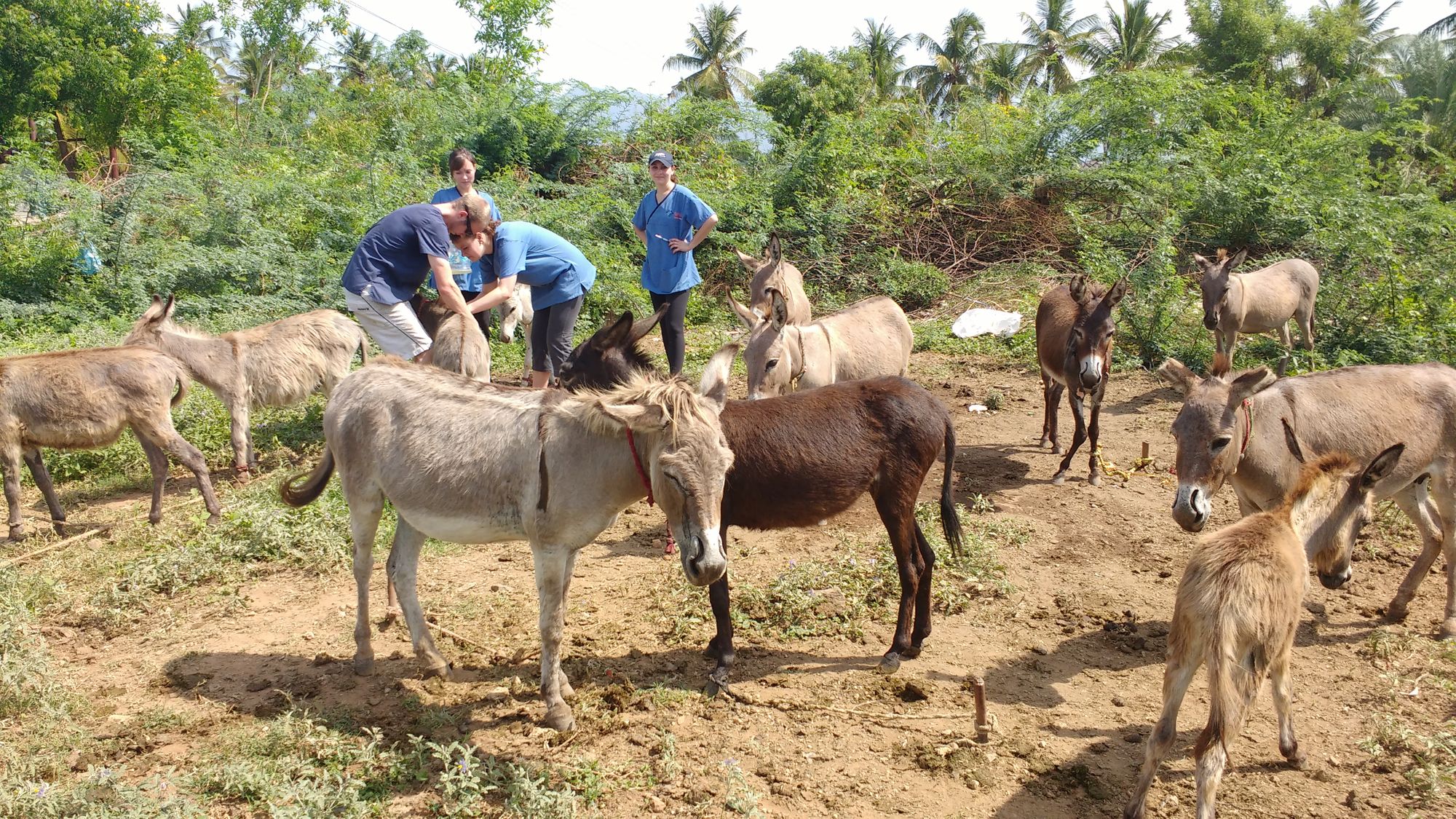Our WVS outreach teams, in conjunction with WTG, have been travelling to villages across the state of Tamil Nadu in southern India to treat as many donkeys as possibleIn these regions (Krishnagiri in the north, Tutigorin in the south, and Mettupalayam in the west of the district) donkeys play a crucial role in the economic livelihoods of the local communities. They are often used to help out with farming and agricultural work, and for transport purposes.

Unfortunately they are also used for the illegal transportation of sand from river banks to construction sites but thankfully local police authorities are cracking down on these kinds of activities. This back-breaking work can lead to many injuries with the donkeys such as hobble and harness wounds, worms or colic, all of which are treated by our teams.

The team have treated 245 donkeys in Krishnagiri. Furthermore we also trained two Indian vets whilst educating community leaders in emergency care and general management of the donkeys to ensure their continuous welfare.

One of the teams’ most memorable was when we helped Mr Kumar from Krishnagiri. His donkeys were regularly dying. The animals, exhausted from pain were given medication and IV fluids as well as liquid paraffin treatment for colic, and they did much better after a couple of days. The team also supplied the owner with supplements and trained him on how to administer so that he could ensure his donkeys were properly looked after.

In Tutigorin, the teams managed to visit three more villages than their previous visit, attending to 226 donkeys. 175 of them received anti-parasite treatment and six receiving additional veterinary care. Due to the frequent work the teams are doing in and around these areas every six months, more locals are able to be trained in wound management and animal healthcare.
Consequently vets have seen an improvement in the donkey health resulting in less veterinary treatments being needed.
In rural Mettupalayam 123 donkeys were treated all of these needed deworming though only five required extra veterinary treatments by the team. One of these was a young foal who had hit by a vehicle a few days prior was in severe pain due to a fractured leg. The team bandaged the leg and showed the donkey’s owner, Ragan, on how to change the bandage daily to keep the foal healthy.
In all across the district, that’s an incredible 594 donkeys attended to and treated!Building rapport with the local community is vital for ensuring a successful clinic and after each visit, the teams are finding better healthcare across the donkey population, thanks to excellent veterinary care and education of the local community on how to correctly care for their animals.

Together, we can ensure the importance of animal welfare and a better life for the donkeys of Tamil Nadu.